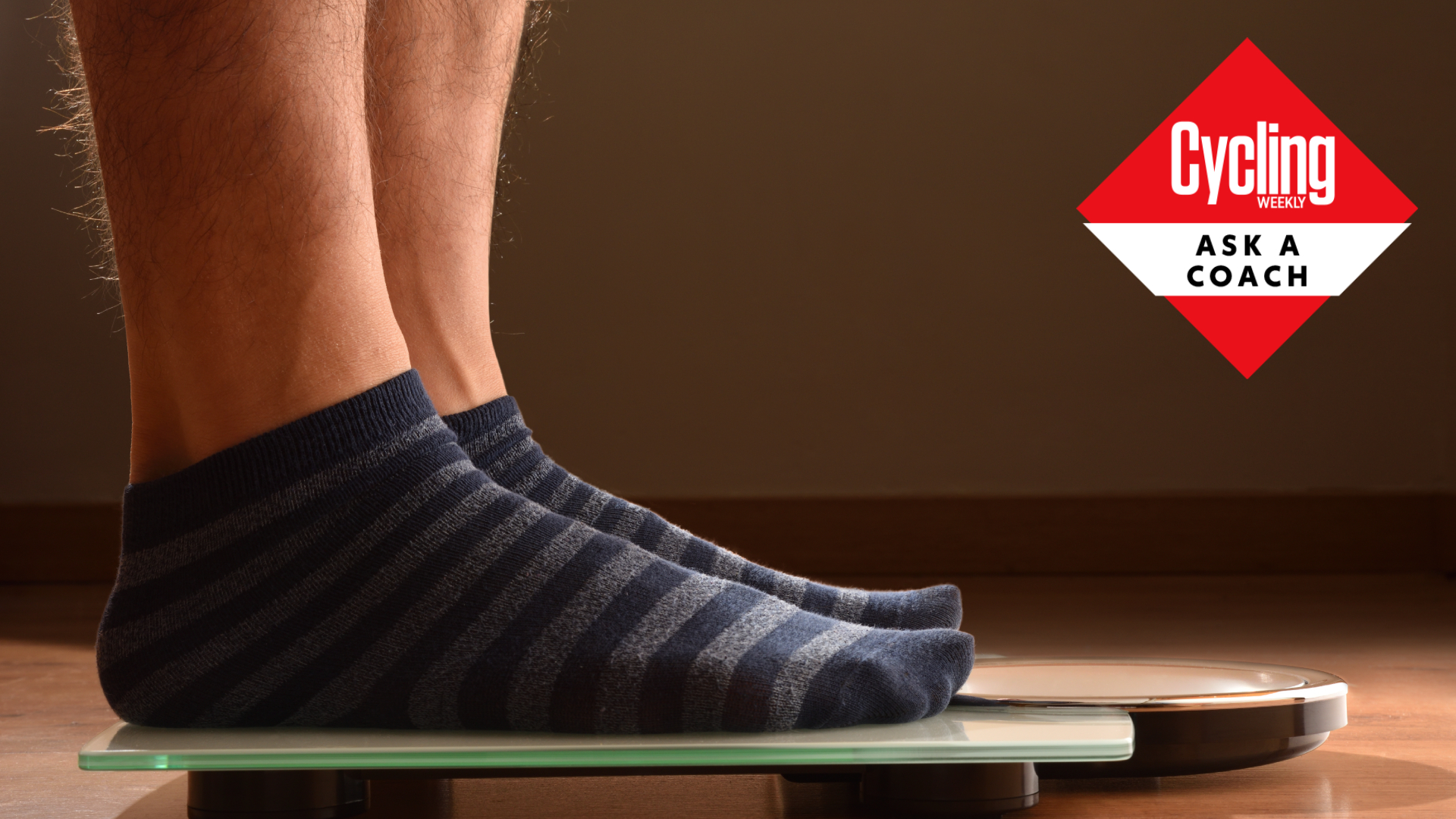Ask a coach: ‘I’m cycling more and more, why aren’t I losing weight?’
If you’re looking for healthy weight loss, there’s more to consider than simply upping the amount of time on your bike


Cycling has so many dimensions: whether you’re a competitive rider who enjoys the thrill of racing, someone who simply likes to get out in the fresh air, or a commuter utilizing it as a mode of transport, we can all acknowledge the core benefits of cycling.
From cardiovascular gains to mental health benefits, as well as a myriad of improvements to your physical health, cycling has it all - including the ability to aid weight loss.
You can burn through a huge number of calories through cycling, without the risk of any impact related injuries, which can more easily be picked up through sports such as running. As such, it’s a particularly effective exercise for weight loss, which in turn will help you cycle faster uphill by an improvement to your power-to-weight ratio - though it’s worth remembering the power side of the equation is most important and should generally be prioritized over weight.
But if weight loss is one of your aims - and if those results are proving elusive - then there are a few elements to consider, beyond just riding your bike more and more. Cycling coach Alex Welburn runs through the details…

Performance cycling coach Alex Welburn is one of the experts who will be answering your questions in Cycling Weekly's Ask a Cycling Coach series, online every Wednesday. He's currently completing a PhD on Critical power and W' at Loughborough University whilst also managing the Performance Project, in which he coaches athletes and provides consultation.
This advice is centered on those aiming to reduce their weight, leading to a better experience on the bike and improved health.
As with anything, having a realistic and achievable goal is key.
British Cycling suggests losing 0.3-0.5 kg per week. But, context is key, and it will depend on where you are starting from. Lighter riders should aim to stick to the lower end of this band.
Get The Leadout Newsletter
The latest race content, interviews, features, reviews and expert buying guides, direct to your inbox!
How much are we likely to burn when cycling?
In order to lose weight, you need to be in a calorie deficit - meaning, you must burn more calories than you consume.
You will have seen ‘calories’ burnt during your ride either when you upload it to training software, or on your cycling computer. Some estimate it from heart rate, others will use data from a power meter.
Even with readings from your power meter, the calculation is often based on the assumption that you are 25% efficient. So, if you have used 1000 calories only 250 of those went to moving the pedals. However, your efficiency varies: we have seen anything from 16 to 25% efficiency when we have measured it in the lab. Therefore, bear in mind that this calorie burn is an estimate, only.
If we cycle for three hours with an average of 200 W, this equates to ≈2160 kJ or 516 Kcal. Under the assumption of being 25% efficient, we have likely used 2064 kcal. If we have had a big breakfast to fuel up for this, eaten on the bike as well and had a good post-ride meal then this expenditure is likely to have been offset.
However, this is not the place to cut, as you don’t want to underperform or even have that horrible bonk. It’s also quite likely that you will have an increased appetite and with the odd snack and slightly bigger portion sizes, even with some additional cycling, it may mean your intake has matched your output.
To reduce your calorie intake, a good start is to reduce those foods you didn’t realize had a lot of calories. According to the NHS, a pint of beer can have up to 222 Kcal. Butter has 100 calories per tablespoon. This isn’t a suggestion on what to cut but consider it as food for thought. Excuse the pun.
Think longer term goals
It is important to view weight loss over longer periods, so you can observe a trend, as you will naturally go up and down.
One reason for fluctuation is simple: hydration. If you drink 500 mL of water, the number on the scales will go up by 0.5 kg. If you have a big ride coming up and you have been ‘fuelling’ the day or two before to ensure your glycogen stores are full this will equate to approx. 300-500g. To store carbohydrates, for each gram, you need 3g of water. So, there is nearly another ± 2 kg of fluctuation.
One of the other things I’ve seen is that we eat the same each day no matter what we do, this often means on some days we are in a deficit, and on others in a small surplus. By the end of the week, it will likely have balanced out, which can be why you are not seeing changes. Therefore, small changes could help see a small but healthy weight loss over time.
Don't aim to imitate your heroes
The term power to weight is thrown around so much. Those at the top of the sport - where the 1% difference does matter - are going to be surrounded by support staff that contain physiologists, doctors and nutritionists for support and guidance on losing weight.
Amateurs - who do not have this support system, and who have other responsibilities to cram into their busy lives - shouldn't expect to reach a physique that mirrors these individuals.
Conclusion
For those who are looking for healthy weight loss, shy away from any rapid weight loss, and keep it safe and consistent.
Your weight will come down, as long as you keep an eye on what you eat with respect to how much exercise you are doing. Look to cut surplus calories by avoiding energy dense choices, that don't fill you up.
Aim not to reduce your on-the-bike fuelling; fuel for the work required, as this is where people go wrong and of course don’t neglect recovery. Simply put you wouldn’t put half a tank of fuel in your car when you will require a full tank.
While you can weigh every day, look at the weekly trend as well - this will give you a better insight into your progress, without the noise of day-to-day fluctuations getting in the way.
As with anything, if you are unsure or unclear, seek the advice of a qualified dietitian or registered sports nutritionist (SENR).

Thank you for reading 20 articles this month* Join now for unlimited access
Enjoy your first month for just £1 / $1 / €1
*Read 5 free articles per month without a subscription

Join now for unlimited access
Try first month for just £1 / $1 / €1
Alex is a Physiologist, Performance Coach, who also lectures occasionally at Loughborough
University where he is completing his PhD in Critical power and W'.
After competing for over 10 years on the bike, where he has competed for GB in both
cyclocross and mountain bike events, he now spends his spare time in the mountains as an
aspiring guide. Alex has worked with cyclists of all levels over the last 9 years, from ultra-
endurance world champions to the Women’s TDF. Supporting his PhD he manages The
Performance Project, consulting with and coaching athletes. Finally, he is also a proud
sponsor of southern based LAKA X Pedal Mafia Race Team.